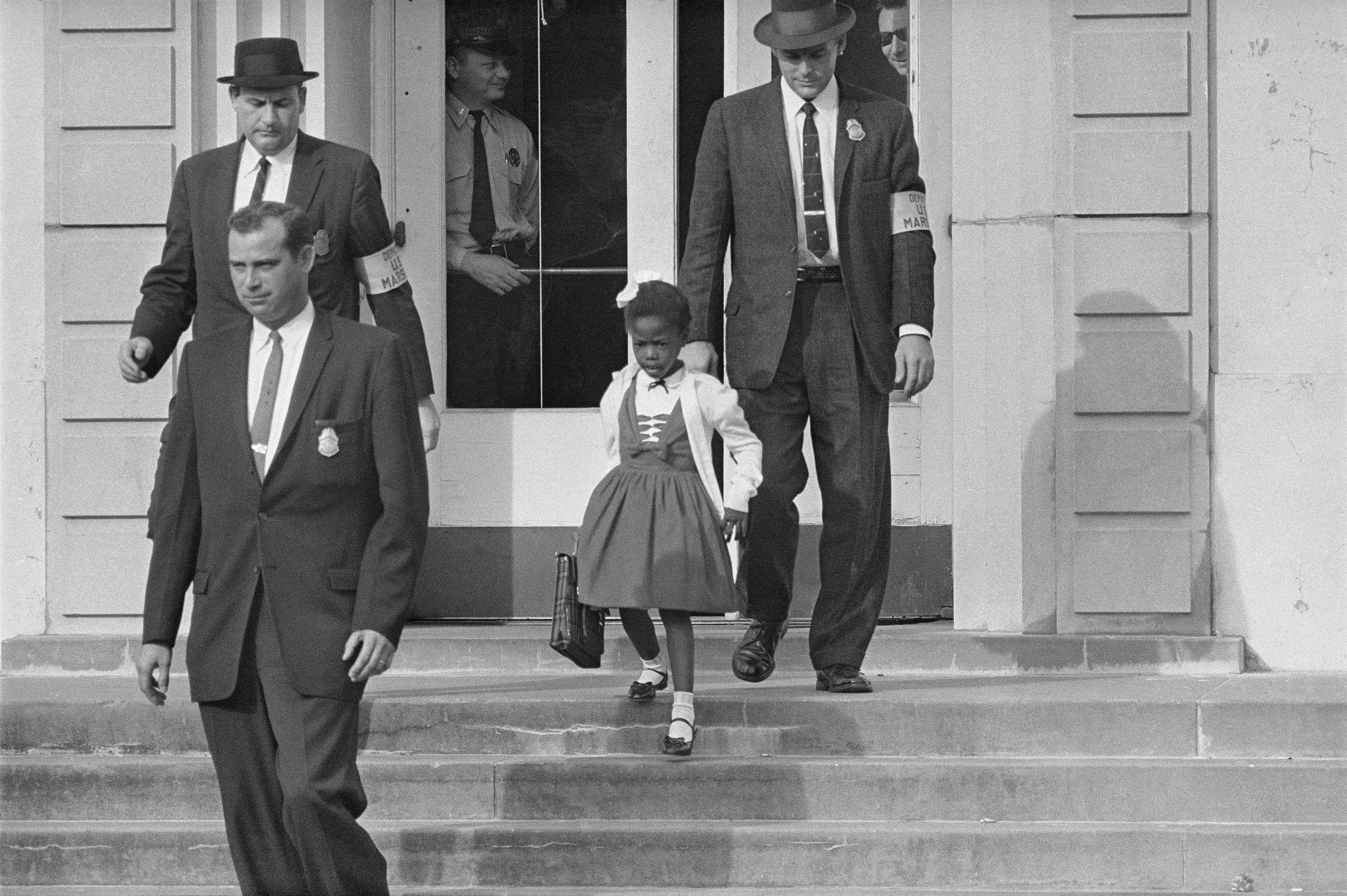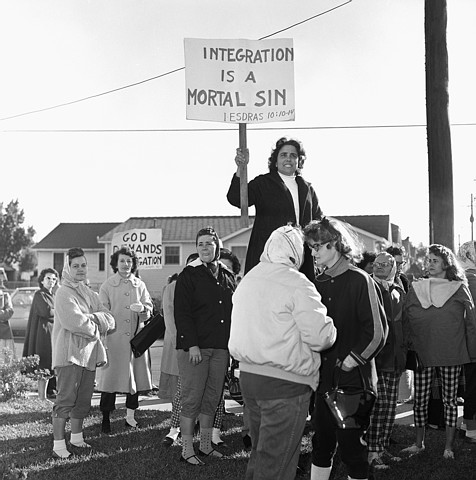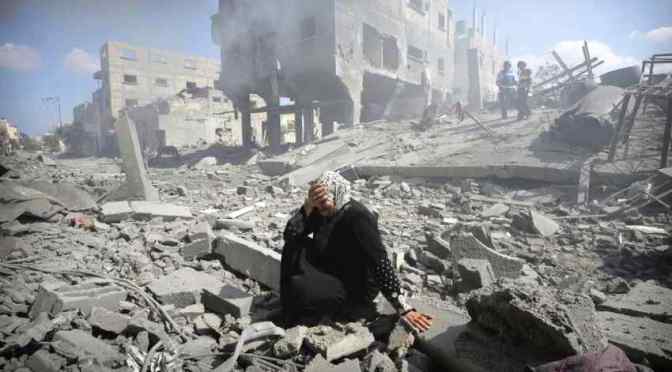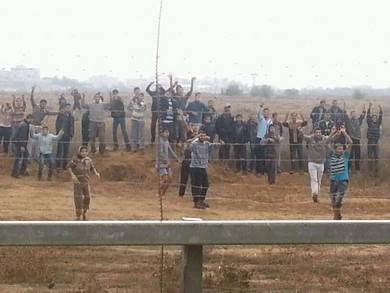Except there is no dehumanization of the Palestinian people, but do go on. In fact, don't you find it rather odd that there is no mention on these boards of the factories that Palestinians and Israelis work at. Can you tell me why that is?
People also forget that palestinians are not Israeli, they don't want to be. Jobs and voting cannot be equal to both in Israel or Israeli held land for obvious reasons. Health care and education is open to both but most palestinians prefer non-Israeli teachers. Housing in Israel is obviously not open to palestinians but arab Israelis live in the same neighborhoods and buildings with the rest of Israelis.
Comparing germans and french with regard to equality in german might help. Palestinians are foreigners in Israel, like french are foreigners in german. French don't vote in german, don't have the right to work without permits, etc. French are not actively at war with german, at this time. In France, the french tend to turn their noses up at foreigners, especially when they try to speak french.
Under jordan and especially egypt the lot of palestinians was far worse than after Israel controlled WB and G. The lot of many arabs in other nations in the region are worse that the palestinians.
Palestinian refugees in Lebanon, syria, jordan and iraq is worse. Yet, palestinians whine and rant and rave about everything. Even the UN and other donors of the palestinians, especially in gaza have closed their checkbooks and withheld even money promised already. UN does not have money to feed the refugees anymore. They are dealing with those far more in need from Syria right now. Even the PA does not want to send money or invest in G. Syria has killed more palestinians that Israel in the last 60+ yrs. Even in the last few tens of thousands have been killed by assad forces or starved to death in syrian camps.
Egypt has only had the rafah open a few times this last year for humanitarian exit of palestinians from egypt, and they have shot fishing boats that stray too close to their waters. They have declared hamas a terrorist organization and will not negotiate with them anymore.
Is it possible that the reason palestinians are dissatisfied has more to do with their attitude and actions that with Israel?
You really think Israel is discriminating? What about the rest of the arab world? Perhaps there is something the palestinians can do beside incite hate and violence against Israel to change their lot in the region. Less than a half of the palestinians live in the G/WB/Israeli area, half maybe of those are in G. Most in the WB are doing far better than those in G. So how many are really "suffering" under Israeli's yoke?
Wrong girl. Read my statement again.
Deputy Head of the Samaria Regional Council Yossi Dagan, who participated in the TV feature, explained:
“There are 10 large industrial centers in Judea and Samaria, in which some 15,000 Palestinians work side by side with Israeli employees. At Barkan alone 3,000 Palestinians are employed together with 3,000 Israeli employees. They work together, earning the same wages, enjoying the same social benefits, vacation days and pension as prescribed by Israeli law. They go on trips together. Coexistence between the two peoples happens here, and all are awarded with a good and respectable livelihood.”
Arab Media Praises Israel s Treatment of Palestinian Workers United with Israel
Palestinian workers back Scarlett Johansson s opposition to SodaStream boycott video - CSMonitor.com
Mayor Nir Barkat proudly trumpets the investments he has made over the past five years in the Arab neighborhoods of East Jerusalem: about $141 million for roads and infrastructure, $113 million to build 500 classrooms, more than $1 million for a single soccer field in Beit Safafa.
But as part of a broader “anti-normalization” campaign, the Palestinian leadership has for decades warned residents against casting ballots.
So a vast majority do not vote, despite the possibility that their large numbers could win a solid blocking minority on the 31-member City Council, if not a winning coalition with sympathetic Israelis.
“The whole thing is not really rational,” said Sari Nusseibeh, president of Al Quds University, whose family has 1,300-year roots in Jerusalem. “It’s not by reason that people are guided; it’s by sentiments and feelings and fears and histories.”
Mr. Nusseibeh once advocated Palestinian voting, backing an Arab newspaper publisher who ran for mayor in 1987 but withdrew after his cars were burned and his home vandalized. Yet Mr. Nusseibeh himself has never voted here, either. And he said that the current Israeli-Palestinian peace talks, with the fate of Jerusalem among the contentious questions on the agenda, make people even more wary that voting could be seen as legitimizing Israel’s control of the city.
http://www.nytimes.com/2013/10/22/w...-politically-powerless-in-jerusalem.html?_r=0
Arab residents express reactions to voting that range from disdain and apathy to surprise that there are elections altogether. Many of them feel a deep attachment to their Palestinian identity, reject Israeli politicians’ being active in their areas or are jaded by a system that has never worked for them and feel never will. They also lack adequate knowledge about their own right to vote.
Many Arabs are considered permanent residents of Jerusalem and live in parts of the city that were conquered in 1967 and annexed in 1980. The Local Authorities Elections Law allows permanent residents to vote in city council elections but not Knesset elections.
Around 160,000 east Jerusalemites will be eligible to vote this month. To be able to vote, people had to have registered as living in the city before September 12 with the Interior Ministry.
But the Arab vote is so low that candidates admit to not campaigning among them, even though the community makes up a potential voter base of 38% of Jerusalem’s Arab residents.
Omri Sheinfeld, a spokesman for the grassroots Yerushalmim party, tells In Jerusalem in an email, “The Arab citizens of Jerusalem, of whom very few vote, are not one of our focus groups.” He adds that the party also doesn’t focus on the haredim, “since they vote as a bloc.”
But Sheinfeld says that the platforms of the party – such as improving education and fighting for gender equality – appeal to Jews and Arabs alike, but they simply don’t have the resources necessary to campaign to a group that has appeared apathetic about voting. It is the responsibility of the city to encourage voting and make it accessible to all, Sheinfeld writes, but in the end, “each person and group decides for themselves” whether or not to vote.
VOTER TURNOUT among this group has always been low, and this has come to be the accepted norm. In a 2003 interview, Barkat candidly divulged that his advisers told him there was no electoral reason to include the Arab neighborhoods in his platform.
But according to the mayor’s office, under Barkat the Jerusalem municipality has invested greatly in the Arab sector in planning and construction, transportation, education and community services. In 2011, the municipality invested NIS 3 million to help facilitate the rezoning of neighborhoods, help residents with proof of ownership issues and “began the diligent process of naming and numbering unnamed streets in eastern Jerusalem.”
http://www.jpost.com/In-Jerusalem/Features/Jerusalems-missing-voters-327800?prmusr=Cx/Lnrb2NjkYsPxidLEAL/RMXndss4Gewwd1S+zbuyGRXsnFYNwTbP6LAMyf2vrm








